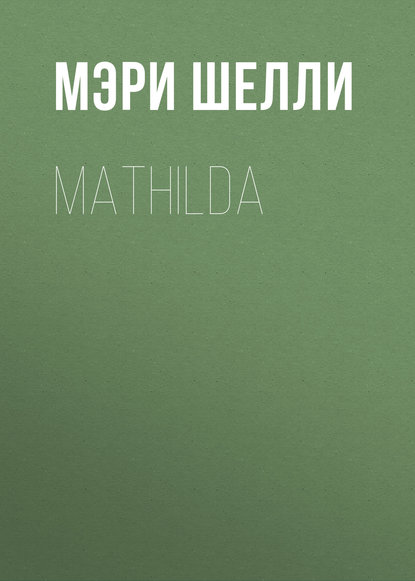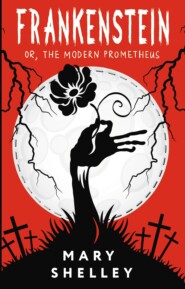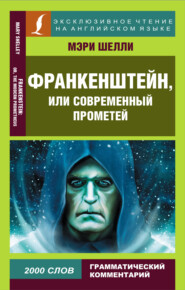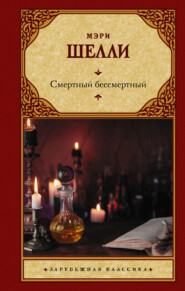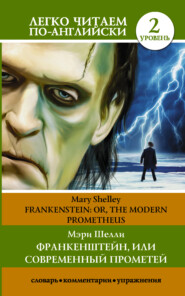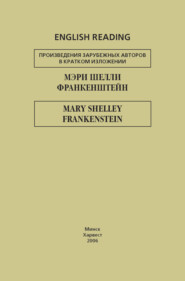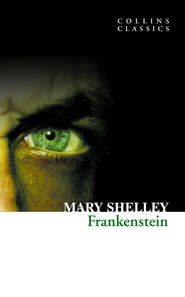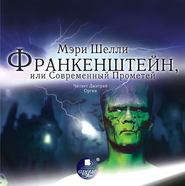По всем вопросам обращайтесь на: info@litportal.ru
(©) 2003-2024.
✖
Mathilda
Настройки чтения
Размер шрифта
Высота строк
Поля
The addition of "I am alone … withered me" motivates Mathilda's state of mind and her resolve to write her history.
22
Mathilda too is the unwitting victim in a story of incest. Like Oedipus, she has lost her parent-lover by suicide; like him she leaves the scene of the revelation overwhelmed by a sense of her own guilt, "a sacred horror"; like him, she finds a measure of peace as she is about to die.
23
The addition of "the precious memorials … gratitude towards you," by its suggestion of the relationship between Mathilda and Woodville, serves to justify the detailed narration.
24
At this point two sheets have been removed from the notebook. There is no break in continuity, however.
25
The descriptions of Mathilda's father and mother and the account of their marriage in the next few pages are greatly expanded from F of F – A, where there is only one brief paragraph. The process of expansion can be followed in S-R fr and in F of F – B. The development of the character of Diana (who represents Mary's own mother, Mary Wollstonecraft) gave Mary the most trouble. For the identifications with Mary's father and mother, see Nitchie, Mary Shelley, pp. 11, 90-93, 96-97.
26
The passage "There was a gentleman … school & college vacations" is on a slip of paper pasted on page 11 of the MS. In the margin are two fragments, crossed out, evidently parts of what is supplanted by the substituted passage: "an angelic disposition and a quick, penetrating understanding" and "her visits … to … his house were long & frequent & there." In F of F – B Mary wrote of Diana's understanding "that often receives the name of masculine from its firmness and strength." This adjective had often been applied to Mary Wollstonecraft's mind. Mary Shelley's own understanding had been called masculine by Leigh Hunt in 1817 in the Examiner. The word was used also by a reviewer of her last published work, Rambles in Germany and Italy, 1844. (See Nitchie, Mary Shelley, p. 178.)
27
The account of Diana in Mathilda is much better ordered and more coherent than that in F of F – B.
28
The description of the effect of Diana's death on her husband is largely new in Mathilda. F of F – B is frankly incomplete; F of F – A contains some of this material; Mathilda puts it in order and fills in the gaps.
29
This paragraph is an elaboration of the description of her aunt's coldness as found in F of F – B. There is only one sentence in F of F – A.
30
Wordsworth
31
Dante
32
The description of Mathilda's love of nature and of animals is elaborated from both rough drafts. The effect, like that of the preceding addition (see note 11), is to emphasize Mathilda's loneliness. For the theme of loneliness in Mary Shelley's work, see Nitchie, Mary Shelley, pp. 13-17.
33
This paragraph is a revision of F of F – B, which is fragmentary. There is nothing in F of F – A and only one scored-out sentence in S-R fr. None of the rough drafts tells of her plans to join her father.
34
The final paragraph in Chapter II is entirely new.
35
The account of the return of Mathilda's father is very slightly revised from that in F of F – A. F of F – B has only a few fragmentary sentences, scored out. It resumes with the paragraph beginning, "My father was very little changed."
36
Symbolic of Mathilda's subsequent life.
37
Illusion, or the Trances of Nourjahad, a melodrama, was performed at Drury Lane, November 25, 1813. It was anonymous, but it was attributed by some reviewers to Byron, a charge which he indignantly denied. See Byron, Letters and Journals, ed. by Rowland E. Prothero (6 vols. London: Murray, 1902-1904), II, 288.
38
This paragraph is in F of F – B but not in F of F – A. In the margin of the latter, however, is written: "It was not of the tree of knowledge that I ate for no evil followed – it must be of the tree of life that grows close beside it or – ". Perhaps this was intended to go in the preceding paragraph after "My ideas were enlarged by his conversation." Then, when this paragraph was added, the figure, noticeably changed, was included here.
39
Here the MS of F of F – B breaks off to resume only with the meeting of Mathilda and Woodville.
40
At the end of the story (p. 79) Mathilda says, "Death is too terrible an object for the living." Mary was thinking of the deaths of her two children.
41
Mary had read the story of Cupid and Psyche in Apuleius in 1817 and she had made an Italian translation, the MS of which is now in the Library of Congress. See Journal, pp. 79, 85-86.
42
The end of this paragraph gave Mary much trouble. In F of F – A after the words, "my tale must," she develops an elaborate figure: "go with the stream that hurries on – & now was this stream precipitated by an overwhelming fall from the pleasant vallies through which it wandered – down hideous precipieces to a desart black & hopeless – ". This, the original ending of the chapter, was scored out, and a new, simplified version which, with some deletions and changes, became that used in Mathilda was written in the margins of two pages (ff. 57, 58). This revision is a good example of Mary's frequent improvement of her style by the omission of purple patches.
43
In F of F – A there follows a passage which has been scored out and which does not appear in Mathilda: "I have tried in somewhat feeble language to describe the excess of what I may almost call my adoration for my father – you may then in some faint manner imagine my despair when I found that he shunned [me] & that all the little arts I used to re-awaken his lost love made him" – . This is a good example of Mary's frequent revision for the better by the omission of the obvious and expository. But the passage also has intrinsic interest. Mathilda's "adoration" for her father may be compared to Mary's feeling for Godwin. In an unpublished letter (1822) to Jane Williams she wrote, "Until I met Shelley I [could?] justly say that he was my God – and I remember many childish instances of the [ex]cess of attachment I bore for him." See Nitchie, Mary Shelley, p. 89, and note 9.
44
Cf. the account of the services of Fantasia in the opening chapter of F of F – A (see pp. 90-102) together with note 3 to The Fields of Fancy.
45
This passage beginning "Day after day" and closing with the quotation is not in F of F – A, but it is in S-R fr. The quotation is from The Captain by John Fletcher and a collaborator, possibly Massinger. These lines from Act I, Sc. 3 are part of a speech by Lelia addressed to her lover. Later in the play Lelia attempts to seduce her father – possibly a reason for Mary's selection of the lines.
46





